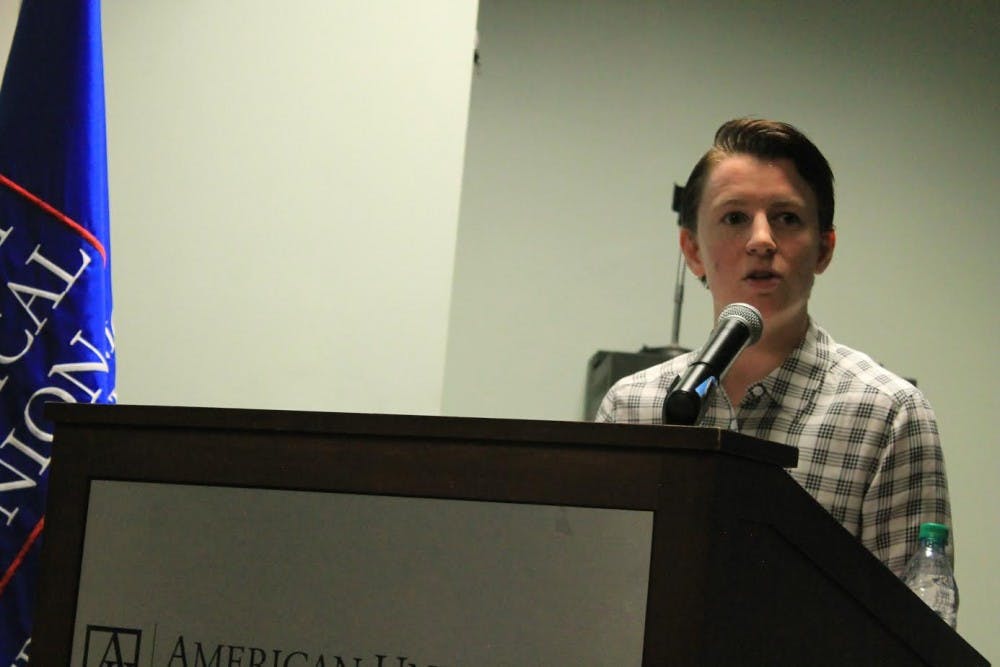Harrison Browne spent six years having two identities. He was Hailey Browne, the gay athlete trying to get through college, and he was Harrison Browne, the trans man who was trying to find his place in the world with his true identity. These identities affected the one thing he loved more than anything in the world: hockey. He kept his true identity a secret throughout college because it would put his hockey scholarship in jeopardy.
“Playing sports at a high level makes your whole life revolve around it, making it very difficult to just give that sport up to transition,” Browne said. “At the time I was attending college on a scholarship, [and] the only reason I had that said scholarship was to play on the women’s ice hockey team.”
Browne, who was the first openly transgender professional athlete in North America, shared his story at an event on Nov. 27 co-sponsored by the Kennedy Political Union, AU PRIDE, the College of Arts and Sciences and the AU athletic department. Browne played for three seasons in the National Women’s Hockey League.
At the time he was playing collegiate hockey, the NCAA had strict rules about players who wanted to transition. To undergo hormone therapy would be a violation of the doping policy, making it impossible for Brown to begin his transition during college, thus keeping him from expressing his full identity.
As college ended and Browne’s professional hockey career began, Browne continued to live a double life. The doping policies in professional hockey would not allow Browne to take the amount of testosterone necessary to begin his transition. Browne waited until he retired in April to begin hormone therapy.
While he had come out to more people, he hadn’t told the National Women’s Hockey League. During his second season with the Buffalo Beauts, Browne decided that it was the perfect time to let the league know that he was a transgender male.
“I didn’t really have a blueprint on the proper protocol, so I just simply sent an email to the league’s front office,” Browne said. “I requested to have my name changed on the roster from Hailey to Harrison and have male pronouns when referring to me on the ice and in the press.”
The league understood right away and had Browne’s name changed on the league website and made sure that all announcers and press called him by male pronouns. This made his new identity public to everyone, and the amount of support that he got was overwhelming, Browne said.
“Having the support of my teammates, coaches and fans, as well as the front office, was amazing for me,” Browne said.
At the end of the 2016-17 season and after winning a championship with the Buffalo Beauts, Browne thought it was time to hang up his skates and begin his physical transition. However, after having such an outpouring of support from the fans, Browne thought it was necessary to hold off on the hormone therapy and return to the sport he loved to play one more season.
He spent the 2017-18 season with the Metropolitan Riveters and was voted into the NWHL All-Star Game by fans before winning another championship.
In April, Browne decided that his time as a hockey player was over and retired from the sport for a second time. Since then he has been doing various speaking engagements across the United States and Canada. He isn’t doing this to garner attention to himself, but to make others more aware of the lives led by transgender people, Browne said.
“Transgender individuals are being targeted left and right since 2016,” Browne said. “Every time I’m sharing my story, I’m spreading more awareness, it humanizes me, the transgender movement, the transgender experience. If someone can put a face to a story, they can feel a little more connected to it.”





